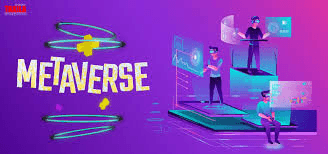The Metaverse: A New Frontier of Digital Interaction
The metaverse is a groundbreaking concept that envisions a shared virtual space where users can interact in real time. Combining the realms of augmented reality (AR), virtual reality (VR), and the internet, the metaverse offers possibilities beyond gaming, extending into socializing, education, business, and even healthcare. As tech giants and startups invest in this transformative technology, the metaverse is poised to redefine how we live, work, and play.

Umair Ali
Umair Ali is a passionate frontend developer with a background in Human Resources and over four years of experience in talent acquisition and employee engagement. Pursuing a specialization in Artificial Intelligence, Web 3.0, and the Metaverse, Umair combines technical expertise with a creative vision to build innovative digital solutions. He is also an avid blogger, sharing insights on emerging technologies and their real-world applications.
What is the Metaverse?
The metaverse represents a convergence of physical and digital worlds, creating an immersive virtual environment. Users can create avatars, explore digital spaces, and interact with others as if they were in the same room. Imagine attending a virtual concert, collaborating on a project in a 3D workspace, or shopping in a digital store where you can "try on" items through AR technology.
How Does the Metaverse Work?
The metaverse relies on advanced technologies, including:
- Augmented Reality (AR): Enhances the real-world experience by overlaying digital information.
- Virtual Reality (VR): Creates completely immersive digital environments.
- Blockchain Technology: Provides security and decentralization for digital assets and transactions.
- Artificial Intelligence (AI): Powers dynamic and responsive interactions within the virtual space.
- 5G Connectivity: Ensures seamless real-time communication and interaction.
Potential Applications
- Social Networking: Platforms where users can gather, share experiences, and build communities.
- Education: Virtual classrooms that provide interactive and engaging learning experiences.
- Workplace Collaboration: Virtual offices where teams can collaborate in real time, transcending geographical barriers.
- Healthcare: Remote surgeries and virtual therapy sessions.
- Entertainment and Gaming: Fully immersive games and interactive experiences.
Challenges and Concerns
While the metaverse offers immense potential, it also presents challenges, such as:
- Privacy and Security: Ensuring user data is protected.
- Digital Divide: Making the technology accessible to all.
- Ethical Considerations: Addressing issues like digital addiction and identity fraud.
- Regulation: Establishing rules for governance and ownership.
The Future of the Metaverse
As the metaverse evolves, it could transform industries, enhance social interactions, and create economic opportunities. However, its success depends on addressing technological, ethical, and social challenges. The metaverse is not just a trend; it's a paradigm shift in the way we experience and interact with the digital world.
Comment Section
Comments:
Be the frist to share your thougts